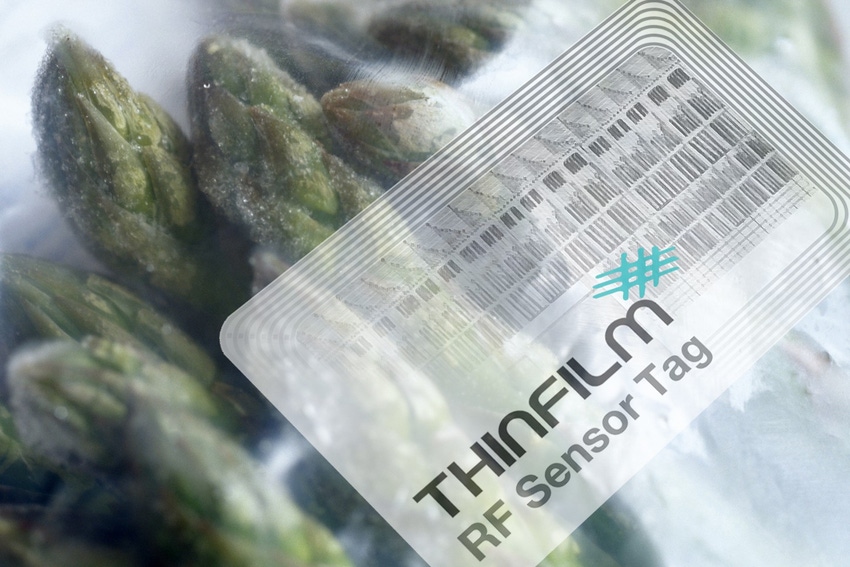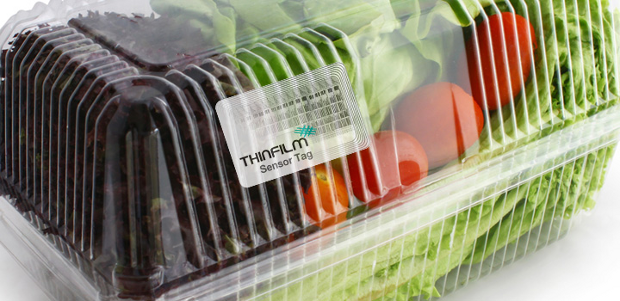Plastics packaging powerhouse Bemis Co. has expanded its partnership agreement with Thinfilm to deliver printed electronics for high-volume applications. Heidi Arnesen, communications manager for Thinfilm, told PlasticsToday that the extension was made to include Thinfilm brand protection solution, which will bring Thinfilm brand protection to packaging.
January 16, 2014

Plastics packaging powerhouse Bemis Co. has expanded its partnership agreement with Thinfilm to deliver printed electronics for high-volume applications. Heidi Arnesen, communications manager for Thinfilm, told PlasticsToday that the extension was made to include Thinfilm brand protection solution, which will bring Thinfilm brand protection to packaging.
Under the terms of the two-year extension, Bemis has secured additional access to Thinfilm technologies for brand protection applications in flexible packaging and beverage labeling. The extended agreement widens the companies' previously announced work together in intelligent packaging solutions.
 In 2012, the companies announced that it had partnered to create a flexible sensing platform for the packaging market. The new category of packaging will collect and wirelessly communicate sensor information, for use by food, consumer product and healthcare companies.
In 2012, the companies announced that it had partnered to create a flexible sensing platform for the packaging market. The new category of packaging will collect and wirelessly communicate sensor information, for use by food, consumer product and healthcare companies.
Arnesen said that the company is on track with its work on intelligent packaging solutions, Smart Labels.
"Just before the holidays we demonstrated the first stand-alone integrated system, powered by batteries," she said. "This is an important step toward the commercialization of integrated systems."
The company aims to have Smart Labels available in 2014. The key components are logic, sensor, memory, display screen and power.
"The Smart Sensor System is perfect for perishable goods, healthcare (vaccines) and any area where it is important that the merchandize has not exceeded a certain temperature," she said.
Bemis' packaging is used for a wide range of products from meat and cheese to medical devices and personal care items. Its customers include food and consumer products companies around the world.
In 2012, Thinfilm CEO Davor Sutija said that low cost sensor tags bring several benefits to brand owners, manufacturers and consumers. The sensor tags are able to monitor and store physical and environmental data of the products, and wirelessly communicate this information.
"This enables more informed decisions in every step of the lifecycle, from manufacturing to the point when the product is consumed," Sutija said. "A 'use by' or 'best before' date is a general guideline, but what if there are troubles in cold chain management? Intelligent packaging helps make better informed decisions."
The sensor tag will measure the output of the component sensor on a regular basis and store a summary of that information in the printed Thinfilm rewritable memory. When a reader is placed in proximity to the tag, the tag will read out the values stored in the memory highlighting, for example, whether a threshold has been exceeded.
"Bemis has stated the Thinfilm technology could eventually be a component of every package they manufacture," Sutija said. "The majority of Bemis packages are used by the food industry, which means the Internet of Things, objects that talk to you, is soon part of your every day life."
A recent market study by Global Industry Analysts said that nanotechnology is emerging as a promising technology in the packaging industry, especially in the field of food packaging and food safety. Growing concerns over food safety issues and increased manufacturer focus on improving the shelf life of packaged foods is creating increased interest in the use of nanotechnology in food packaging, the report stated.
The market in the coming years is expected to benefit from the development of nano-coatings, surface biocides, bioplastics, intelligent packaging nano-sensors, and carbon nanofibers, among others. Key benefits of nanotechnology based packaging solutions include lower product weight, superior heat and moisture resistance, longer shelf life, product traceability/tracking/monitoring, and continuous monitoring of product quality, freshness and wellness through the use of nanosensors.
About the Author(s)
You May Also Like


